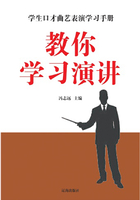The loss of Atlanta was the signal for another conflict of authority within the Confederacy. Georgia was now in the condition in which Alabama had found herself in the previous year. A great mobile army of invaders lay encamped on her soil.
And yet there was still a state Government established at the capital. Inevitably the man who thought of the situation from the point of view of what we should now call the general staff, and the man who thought of it from the point of view of a citizen of the invaded State, suffered each an intensification of feeling, and each became determined to solve the problem in his own way.
The President of the Confederacy and the Governor of Georgia represented these incompatible points of view.
The Governor, Joseph E. Brown, is one of the puzzling figures of Confederate history. We have already encountered him as a dogged opponent of the Administration. With the whole fabric of Southern life toppling about his ears, Brown argued, quibbled, evaded, and became a rallying-point of disaffection. That more eminent Georgian, Howell Cobb, applied to him very severe language, and they became engaged in a controversy over that provision of the Conscription Act which exempted state officials from military service. While the Governor of Virginia was refusing certificates of exemption to the minor civil officers such as justices of the peace, Brown by proclamation promised his "protection" to the most insignificant civil servants. "Will even your Excellency," demanded Cobb, "certify that in any county of Georgia twenty justices of the peace and an equal number of constables are necessary for the proper administration of the state government?" The Bureau of Conscription estimated that Brown kept out of the army approximately 8000 eligible men. The truth seems to be that neither by education nor heredity was this Governor equipped to conceive large ideas. He never seemed conscious of the war as a whole, or of the Confederacy as a whole. To defend Georgia and, if that could not be done, to make peace for Georgia--such in the mind of Brown was the aim of the war. His restless jealousy of the Administration finds its explanation in his fear that it would denude his State of men.
The seriousness of Governor Brown's opposition became apparent within a week of the fall of Atlanta. Among Hood's forces were some 10,000 Georgia militia. Brown notified Hood that these troops had been called out solely with a view to the defense of Atlanta, that since Atlanta had been lost they must now be permitted "to return to their homes and look for a time after important interests," and that therefore he did "withdraw said organizations" from Hood's command. In other words, Brown was afraid that they might be taken out of the State. By proclamation he therefore gave the militia a furlough of thirty days. Previous to the issue of this proclamation, Seddon had written to Brown making requisition for his 10,000 militia to assist in a pending campaign against Sherman. Two days after his proclamation had appeared, Brown, in a voluminous letter full of blustering rhetoric and abounding in sneers at the President, demanded immediate reinforcements by order of the President and threatened that, if they were not sent, he would recall the Georgia troops from the army of Lee and would command "all the sons of Georgia to return to their own State and within their own limits to rally round her glorious flag."
So threatening was the situation in Georgia that Davis attempted to take it into his own hands. In a grim frame of mind he left Richmond for the front. The resulting military arrangements do not of course belong strictly to the subject matter of this volume; but the brief tour of speechmaking which Davis made in Georgia and the interior of South Carolina must be noticed; for his purpose seems to have been to put the military point of view squarely before the people. He meant them to see how the soldier looked at the situation, ignoring all demands of locality, of affiliation, of hardship, and considering only how to meet and beat the enemy. In his tense mood he was not always fortunate in his expressions. At Augusta, for example, he described Beauregard, whom he had recently placed in general command over Georgia and South Carolina, as one who would do whatever the President told him to do. But this idea of military self-effacement was not happily worded, and the enemies of Davis seized on his phraseology as further evidence of his instinctive autocracy. The Mercury compared him to the Emperor of Russia and declared the tactless remark to be "as insulting to General Beauregard as it is false and presumptuous in the President."
Meanwhile Beauregard was negotiating with Brown. Though they came to an understanding about the disposition of the militia, Brown still tried to keep control of the state troops. When Sherman was burning Atlanta preparatory to the March to the Sea, Brown addressed to the Secretary of War another interminable epistle, denouncing the Confederate authorities and asserting his willingness to fight both the South and the North if they did not both cease invading his rights. But the people of Georgia were better balanced than their Governor. Under the leadership of such men as Cobb they rose to the occasion and did their part in what proved a vain attempt to conduct a "people's war." Their delegation at Richmond sent out a stirring appeal assuring them that Davis was doing for them all it was possible to do. "Let every man fly to arms," said the appeal. "Remove your negroes, horses, cattle, and provisions from before Sherman's army, and burn what you cannot carry. Burn all bridges and block up the roads in his route. Assail the invader in front, flank, and rear, by night and by day. Let him have no rest."















